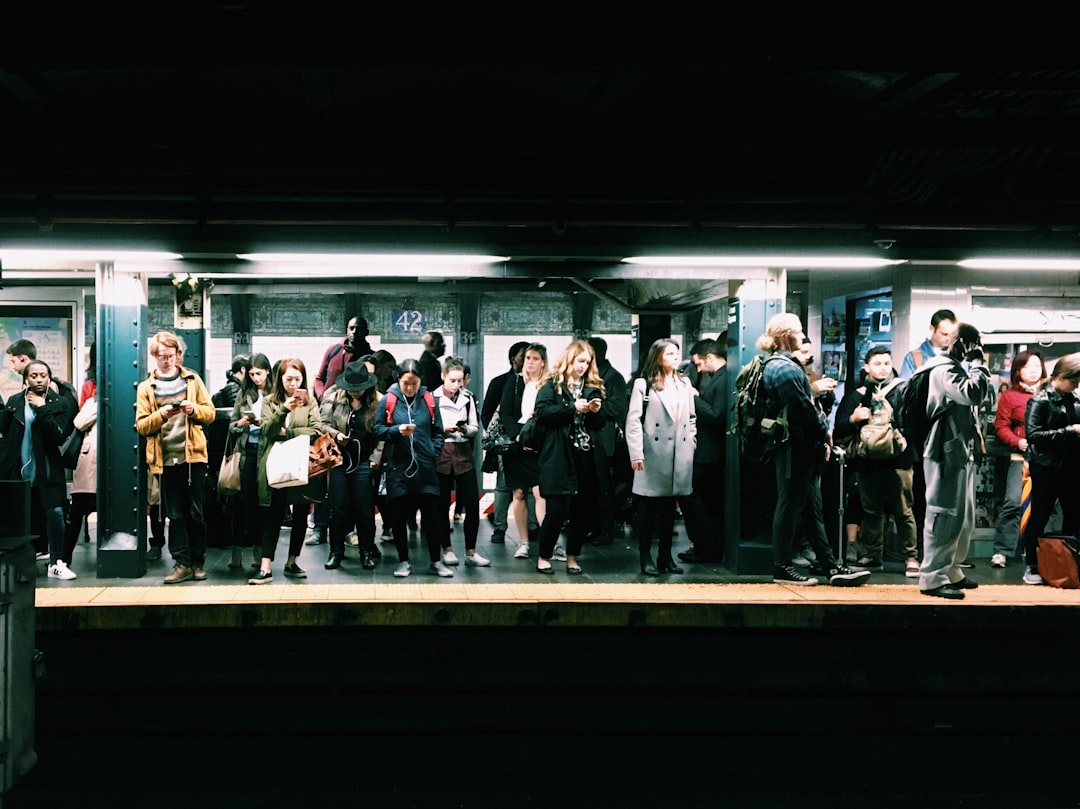Covid Creativity Wanted
As we get back to normal, why are we keeping the things that didn't work?

This is the free weekly edition of this newsletter. If you’re enjoying it, or if you want to support feminist-minded media, consider upgrading to a paid subscription. This endeavor is 100 percent reader-supported. I appreciate you!
As of Wednesday, the New York City subway system has new mask rules: “You do you.”
That is: Wear a mask or don’t; choose your choice. Dropping the mask requirement, Gov. Kathy Hochul said, was in response to stable hospitalization numbers, a national (and international) move away from mask mandates, and an effort “to restore some normalcy to our lives.”
The decision was predictably controversial. Disability rights advocates in particular argue that removing the mask mandate makes it harder for immunocompromised people to move through public space and utilize public transportation. The head of the MTA, on the other hand, argued that “It became more and more difficult to justify and to enforce a mask requirement as so much of the city and so many other places were opening up — bars, restaurants, offices.”
She has a point. Plus there is the fact that a great many people didn’t bother complying with the subway mask mandate anyway. Purely anecdotally, I observe at best 50% masking any time I ride the train. Masking was already being treated as a suggestion, not a requirement.
One frustrating thing about this period of Covid normalization, though, has been to see just how little creativity or innovation the pandemic inspired. This hugely disruptive once-in-a-century global event could have been an opportunity ask ourselves if we are living the way we want to live, and if the old ways of doing things actually make sense or were simply habitual. Instead, there has primarily been two tracks: A push to get back to normal, and demands to still live like it’s the spring of 2020.
There are other options. And the subway strikes me as an opportunity to try them out. For example: What about a dedicated masking car, which would enable people who are immunocompromised or just really scared of getting Covid to travel with greater confidence, while letting everyone else make their own choices, too? Across the world, there are public transport cars reserved for women, or for silent travel; it wouldn’t be so hard to designate one car on each subway as a fully masked space. Those of us who prefer not to mask wouldn’t lose our ability to do so, and those who are vulnerable would be better able to take advantage of public transport — which in New York is not so much a choice but a requirement to get around efficiently.
I am definitely in the relief camp when it comes to lifting Covid restrictions. I’m also generally physically healthy, and I have a relatively high tolerance for risk. At some point, every society has to make cost-benefit decisions, including about health and safety. We set speed limits to try to balance the need to get places quickly with the physical risk of driving cars; significantly lower speed limits would mean far fewer traffic injuries and fatalities, but would also impede day-to-day life and productivity in a way that most Americans would find intolerable. The opportunity for Zero Covid has come and gone; we do have to live with this thing, and that is going to mean some level of risk.
But it also means an opportunity for straightforward conversations about how we weigh the various costs and benefits of any policy change. And it’s an opportunity to get a little more creative: What worked during the pandemic? What didn’t? What could we try to maximize people’s health and their desire to return to normal?
There is no singular answer to that last question. And if you are Very Online, you know there is a small but extremely vocal minority of folks who are reflexively and aggressively opposed to any return to pre-Covid normalcy, arguing, essentially, that any risk is too high.
Clearly, I feel differently. But I also chafe at a return-to-normal path that simply tries to recreate Before Times without much thought to how we could integrate the lessons of the past three years as we chart our way forward — when it comes to health and safety, but also work, family, culture, and society. There is ample opportunity here to rethink the way we’re living. It’s a shame our policy-makers largely aren’t taking it.
xx Jill
This is the free weekly edition of this newsletter. If you’re enjoying it, or if you want to support feminist-minded media, consider upgrading to a paid subscription. This endeavor is 100 percent reader-supported. I appreciate you!


